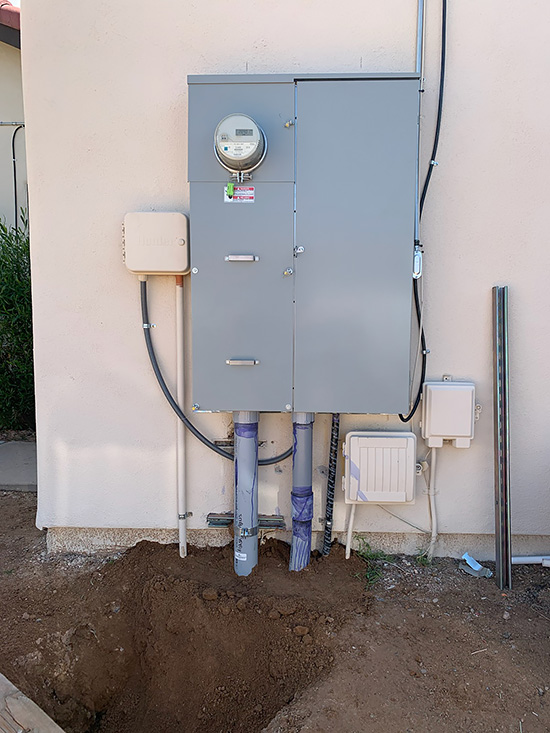Monitoring and maintaining your circuit breakers is essential for the safety and efficiency of your electrical system. Here are some tips and best practices for homeowners:


Resetting Tripped Circuit Breakers
When a circuit breaker trips (moves to the middle position between on and off), it means there was an overload or short circuit in that circuit.
To reset a tripped circuit breaker, always follow these steps:
- Identify which circuit breaker has tripped. This can usually be done by looking at the position of the breaker handle.
- Before attempting to reset it, turn the handle to the “off” position. This ensures that you start with a clear, off position.
- Once the handle is in the “off” position, push it firmly to the “on” position. This should restore power to the circuit if the issue has been resolved.
Checking for Tripped Breakers
- Not all circuit breakers have visible trip indicators. Therefore, it’s important to regularly check your circuit breakers if you suspect an electrical issue in your home.
- If you’re experiencing multiple tripped breakers or if a breaker frequently trips, it may indicate an underlying electrical problem that needs to be addressed by a professional electrician.
Periodic Maintenance
- It’s a good practice to perform periodic maintenance on your electrical panel, including torquing terminals and lugs inside the service panel or circuit breaker panel.
- Loose wire connections can lead to nuisance tripping and can even contribute to the premature failure of electrical equipment connected to those circuits, such as your HVAC system and appliances.
- Consider having a licensed electrician inspect and perform maintenance on your electrical panel about every five years or as recommended by a professional.
Professional Assistance
- If you’re unsure about how to handle any aspect of circuit breaker maintenance or if you suspect electrical issues in your home, it’s best to consult a qualified electrician.
- Electricians have the knowledge and equipment to safely inspect, repair, and maintain your electrical system.
Safety First
- Always prioritize safety when dealing with electricity. If you’re not comfortable or experienced with electrical work, it’s safer to seek professional assistance.
- Never touch electrical components with wet hands, and avoid working on electrical systems in damp conditions.
Regularly monitoring and maintaining your circuit breakers can help prevent electrical issues, ensure the safety of your home, and extend the lifespan of your electrical equipment. If in doubt, consult a licensed electrician to address any concerns or perform maintenance tasks.


